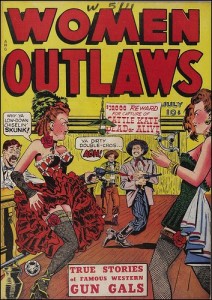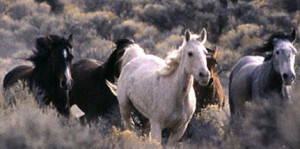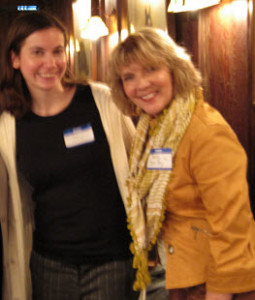Is it a good idea for writers to straddle genres? That question was the focus of lively debate at a program I attended over the weekend. Moderated by Edgar Nominee Christa Faust (whose books have the hottest covers in town, by the way), the panel included comics author Steve Niles, Linda O. Johnston, and Matt Wallace, a Nebula and
Christa kicked things off by having the panelists pull genre labels from a paper bag. The panelists then had to pitch a story that combined multiple genres. Pulp noir and techno-thriller, anyone? Matt came up with a story set in the 30’s, involving a stolen iron lung and a death ray chase. It got a big round of applause.
Cross-genre writing is here to stay, seemed to be the message. Linda, a self-described “Romantic Suspense, Paranormal Romance and Mystery Novelist,” has no problem combining genres. One of her series involves a pet rescuer; another features a sexy military man who just happens to be a werewolf, and the veterinarian who saves him. Holy Genre Smack-down,
Writers who cross genres must build their “author’s brand” to draw readers across the borders, was one message we heard. Sue Ann Jaffarian, who writes paranormal cozies and “regular” cozies, was cited as an example of successful brand building. She and Christa recently did a tour to help spread the word that readers shouldn’t be afraid of jumping genre fences, such as from cozy to hard boiled. We heard that writers should determine where a story belongs, rather than trusting the publisher to assign it to the right genre. (Although publishers can, and sometimes do, overrule our choices). If you’re not sure which genre your story belongs in, pick the most prominent one. (And as Jim reminded me in the comments, it’s important to write a story that you’re passionate about: Don’t combine trendy genres as a sales gimmick.)
Science fiction and horror have often been described as the cheap-seats of genres, but when horror and sci-fi writers become successful–think
The program venue, by the way, was Meltdown Comics, a place I loved discovering (Before Sunday, I hadn’t opened a comic book since the Love Comics of my ‘tweens.) Matt said later on
So what about you? Does your writing (or reading) straddle genres? Which ones? Have you ever had something you wrote exiled to the wrong genre section, where it was hard for readers to find you?





